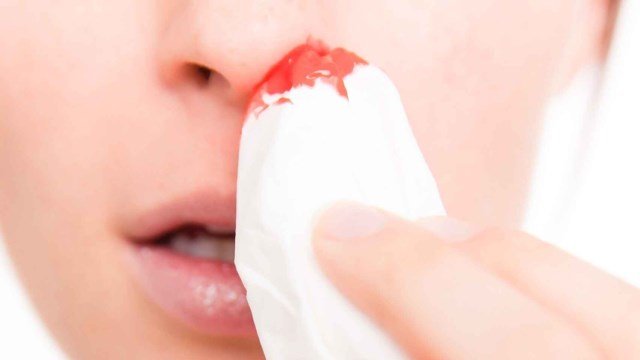Blood has always been a very alarming element, when it comes to bleeding produced in any part of the human body and more so if it is a child. If this is your case, you have to make quick decisions so that the infant is not scared by what is happening to him. Most children between the ages of three and ten pick their noses. Producing this annoying spill of blood in the soft part of the nose. You just have to press with your thumb and index finger for a period of 10 minutes, teaching the child to breathe through the mouth, so that they do not suffocate. The result of this technique is quick to apply and the bleeding stops on its own. And if it is to your liking as a protective mother, you can apply home treatments that are effective in these cases. There are adults who suffer from poor blood coagulation, high blood pressure, atherosclerosis or nasal infections that can cause severe bleeding in the nostrils. If the bleeding is not caused by a disease called Von Willebrand, the hemorrhage can be treated in extreme cases with vitamin K, since the system is deficient in this vitamin that helps to coagulate the blood. And if the case is not to worry, just by applying a few drops of medicinal solution such as Afrin before pinching the nostrils, you can have good results.

Causes that produce nosebleeds.
The nose is covered by a series of veins and arteries that are delicate to the touch. If it is a child, this membrane is very thin and when they rub or have any type of accident, they are prone to bleeding. Here are some of the most common causes for this disorder to manifest: Most children are playful by nature and there are even others who invent stunt games, causing accidents that inadvertently cause trauma to their nose, you have to be constantly watching your children since they are in a learning stage. Allergies are the product of intolerance to objects, animals and even the environment that surrounds it, leading to it being detrimental to its development. Nasal operations should be the most pressing in these cases. The child may present with mild or acute sinusitis. Not everyone gets foreign objects in the nose, but you have to check when you find bleeding. Irritation may occur from long-term use of nasal medications, either sprays or drops. The flu or respiratory infections give rise to this disorder. Altitude is another factor that affects and produces hemorrhage. The dry environment or air with strong heating induce this cause. You would be interested in reading What to take for gases
Tips to take care of your child if he bleeds from the nose.
Remember that bleeding from the nose is a common case in all infants, the ideal is that if it occurs at a certain time, take these practical tips into consideration:
Keep calm and pass it on to your child, do not despair so as not to be alarmed with exaggeration. Make the child assume the correct sitting position and help him tilt his head back, keeping the nostrils pressed for ten minutes. And if you prefer you can lay him down in a straight position and let him breathe through his mouth, that is in case he feels dizzy. After the ten minutes have elapsed, check if it is still bleeding. If the bleeding persists, press the soft front part of the nostrils again for ten more minutes by placing a cold compress or ice cloth on the area of the nasal bridge. If you took the child to a doctor and ordered some treatment for the problem, give him the dose that corresponds to him. The only way you’re going to get the kid to a doctor is if you see his broken nose.
Other recommendations that you should put into practice.
After 24 hours after the bleeding occurred, the child or person who had the bleeding should avoid the following actions. In addition, the healing process in the affected area takes about 10 days, the contraindications are the following: Do not put your head down. Do not clean the nostrils with your fingers or cloth, since the healing process has not been completed. Keep your nose moist with either menthol sprays, saline solutions, ointments or creams that have antibiotics and Vaseline. Your application must be introduced with the help of a swab. Avoid doing strong physical exercises or lifting heavy objects. Avoid rubbing your nose with your hands, not even with cloths. If you are going to inhale any product that contains menthol, treat the affected area gently. Try not to blow your nose so you don’t cause bleeding.